Gotta Sing, Gotta Dance!
These interviews with Chinese American performers take an intimate look at the popular nightclub era of the 1930s through 1950s. The Chinese American performers talk about their personal experiences during the era and the role that race played in entertainment.
Rights & Usage:
All rights to the interviews, including but not restricted to legal title, copyrights and literary property rights, belong to the Museum of Chinese in America (MOCA). Interview can only be reproduced with permission from the Museum of Chinese in America (MOCA).
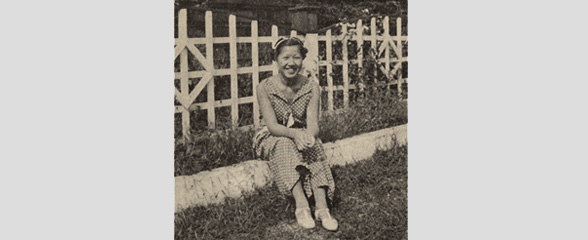
2015.008.001 Interview with Alice Eng and Anne Lee November 18, 2000
Alice Eng and Anne Lee are sisters who discuss what life was like growing up in New York City in a big family. After living in Brooklyn for the first few years of their lives, their family then moved to China. However they then returned to the United States as refugees and their family then relocated to Midtown. Some of their family members fought in World War II and both women went to graduate high school, get married and become homemakers. In the interview they express their interests in learning and reading when they were young but also how they grew up being told they would only be homemakers. They discuss generational differences between their parents, them and their own children and how they grew up affected their parenting styles.
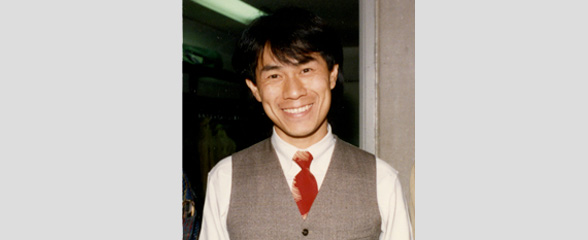
2015.008.002 Interview with Arthur Dong September 9, 1999
Arthur Dong begins this interview discussing the nightclub scene for Asian Americans during World War II and how there was a positive association with Chinese Americans and China that many of the US felt in contrast to a negative image of Japanese. He goes on to comment on the number of Japanese and Korean American (all American born) performers that masqueraded as Chinese American and reflects upon defying and performing stereotypes in regard to Chinese American performers and rolls in film. He goes on to mention the various reunions and legacies that have occurred since the China Doll Night Club and Flower Drum Song came out. He talks about methods of preserving history (through film and through collecting artifacts).
A main focus of this interview is the depiction (and lack thereof) of Chinese Americans in media representations. He says he doesn’t want there to be a black and white, traditional and Westernized, view of Chinese Americans and he speculates that stereotypes about Chinese men and women may have gotten worse in part due to political tensions between China and the US. He discusses issues of Chinese (and Asian) American identity and agency how people’s performances professional and of their own identity can relate to issues of culture.
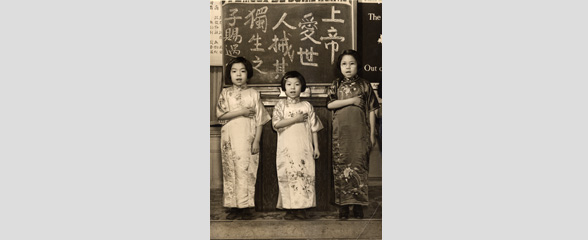
2015.008.003 Interview with Elizabeth Ng, April 24, 2001
Elizabeth Ng talks about growing up in Depression Era New York City living in a big family and participating in the neighborhood church. She speaks about her brothers going to war and her parents’ relationship and histories. Growing up she went to Washington Irving high School and then Hunter College. She also reflects upon her sister dancing in the World’s Fair in Queens. After college with a degree in teaching she became a teacher in New York City. She discusses her relationships with the siblings and how the church has been a foundation throughout her life.
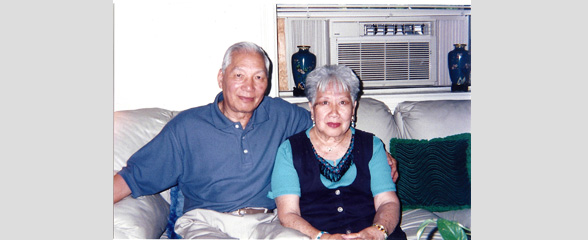
2015.008.004 Interview with George and Ruth Wong, June 15, 2000
In this interview, husband and wife, George and Ruth Wong, talk about how they were both performers at the China Doll Night Club. George Wong describes how he was born in China and trained in acrobatics there. When he was 9, he was in an acrobatic troupe that toured Europe. Ruth Wong was born in the United States but was sent back to China with her mother and siblings to get an education during the Depression Era. She talks about growing up in a neighborhood where she was picked on for being Chinese American. During World War II George Wong stayed in Sweden for six years and Ruth Wong was in the United States working in factory. After George Wong moved to the United States to be a acrobatic performer, he speaks about traveling in the US and how unexpected it was for strangers that he knew Swedish better than English.
The two talks about how they met at the China Doll Night Club and what it was like to work there. They describe what it was like at the China Doll Night Club and what kind of people went there. They reminisce about the people they used to work with and reflect upon how trends have changed since in entertainment. They explain that part of the appeal of the China Doll Night Club was because there was no other Chinese American clubs in NYC at the time. They emphasize the ways in which the United States and especially New York City was diverse and how that can influence interracial relationships.
George and Ruth Wong also describe what it was like having a daughter and working on the road. They recount how he quit performing once their children were of school-age and he began working in the restaurant business. They talk about their children and reflect upon how fame and performance are different today in comparison to when they were performing.
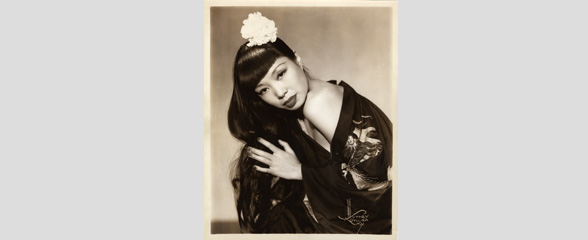
2015.008.006 Interview with Jadin Wong June 9, 2000
Jadin Wong grew up in a little town in a musical family where she had an interest in movies and stage performance at a young age. She left home at 14 and went to Hollywood to pursue a performance career. After being in films, she trained in ballet and became a professional dancer. She explains the different types of dance she did and their influences on her style. She talks about her experiences at the China Doll Night Club and what it was like to perform there. She reflects on changing body ideals between generations and the nuances of being a performer in comparison to other careers. Wong talks about the closing of the China Doll Night Club and doing shows for the military during World War II in Europe. She continues to describe how she became an agent and how she feels about performing.
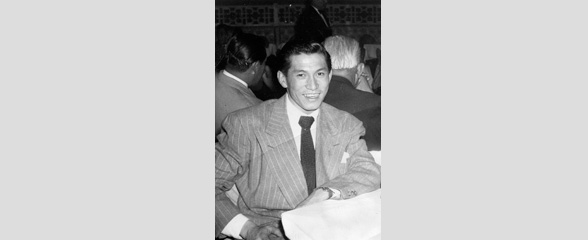
2015.008.007 Interview with Larry Long June 16, 2000
In this interview, Larry Long describes growing up in Australia and how he began tap dancing. With a lot of natural talent he quickly got jobs to dance and was able to join a touring performance. However, his dance career was interrupted when he was drafted for the Australian army. After his term he then came to United States, got a job, returned to Australia to get a visa and then came back to the United States. After working some on the West Coast, Long then traveled to New York, performed at the Apollo Theater (as an emcee) and then got a job at the China Doll. Long then elaborates on the politics of working at the China Doll and how much of their performance material was Latin music and dancing while all of their performers were Asian. He then worked for quite a while at the Forbidden City. He reflects upon differences between when he was performing in comparison professional performance culture now.
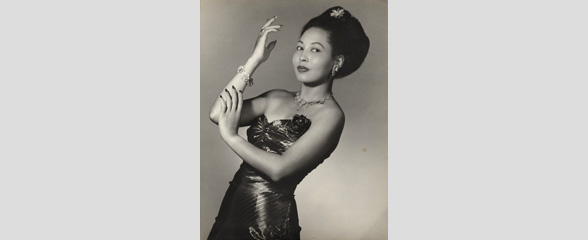
2015.008.008 Interview with Ming Chu October 30, 2000
Ming Chu describes her experiences as a young performer in New York City. At the age of 15 she began dancing at a club and eventually got the opportunity to tour Europe. While in Europe she performed through WWII for troupes and was in several films. She discusses growing up and how her father died when she was two and her mother died when she was a young adult. She was raised in Florida but lived in NYC to train at Carnegie Hall in dance. She shares her motivations for entering show business and how when she was modeling on the side before her big break in Europe, a statue of her was made that later became well-known. After performing in Europe for many years with the stage name Princess Ming Chu, she returned to the US and worked in NYC, Hollywood and all over the country singing and dancing in night clubs and in theatre. She comments how throughout her life, she met several famous people including Walt Disney and Orson Welles.
Ming Chu also spends time reflecting upon her personal life and discussing some of the generational differences between performing when she was young and performance now. Additionally, she says moving to NYC after returning from Europe was the first time she was exposed to a Chinese American community. She continues to discuss generational differences in regards to politics, religion and being Asian American in the United States. She performed into her 60s and she comments that she was usually the only Chinese American act in her shows. Over time people lost interest in the club scenes and she discusses how difficult it is to get into show business today.